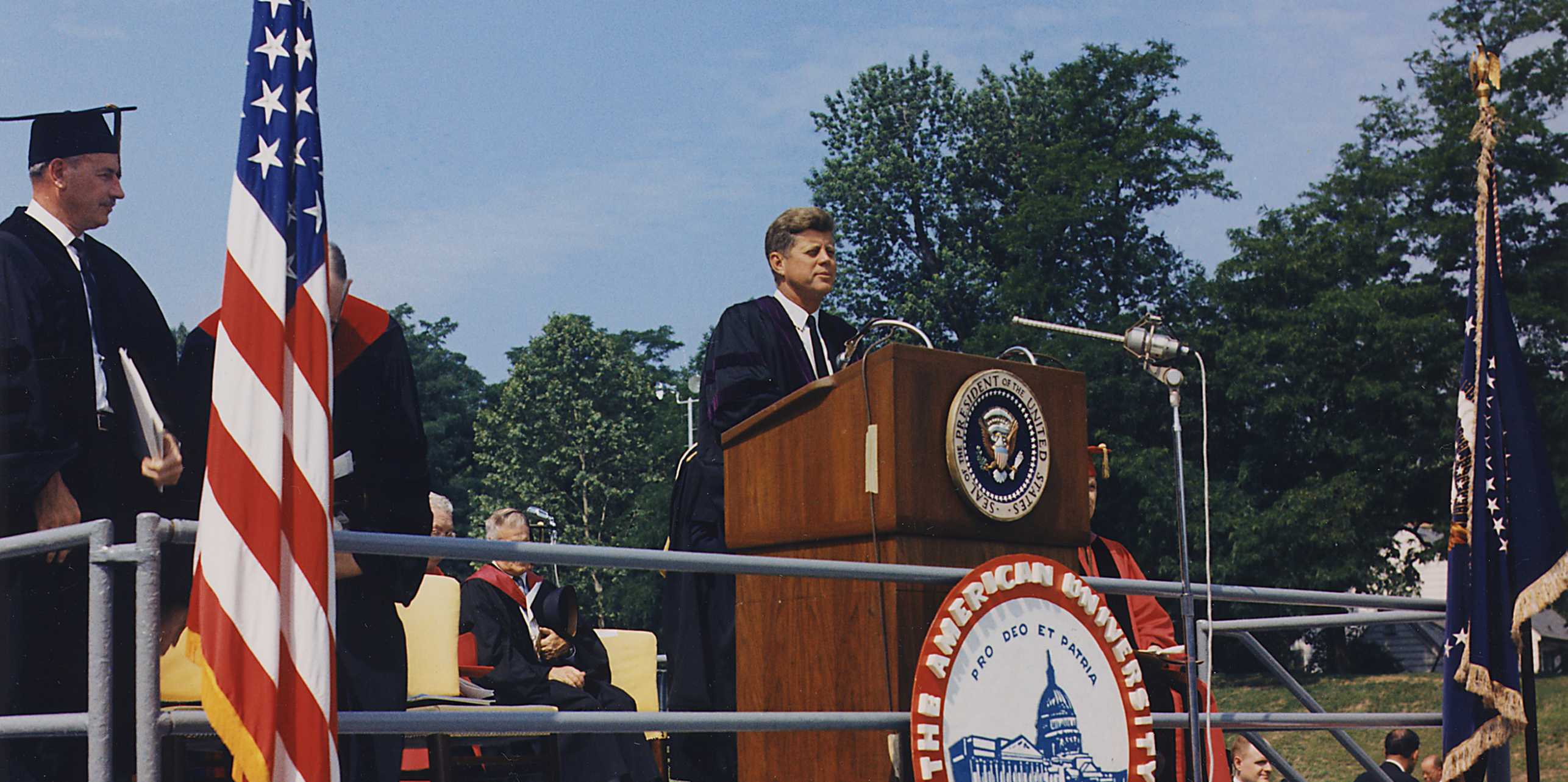Arms Control Without Treaties
Increasing tensions between nuclear powers and the disruptive potential of various technologies are heightening nuclear risks, argue Névine Schepers and Oliver Thränert in this CSS Policy Perspective. While nuclear arms control treaties may be difficult to negotiate, informal measures can provide opportunities to reduce risks.

President John F. Kennedy’s American University commencement address, known as his “Peace Speech,” 10 June 1963. Cecil Stoughton / JFK Library
Key Points
- A range of issues, from the interconnectedness of non-nuclear and nuclear systems to the need to include recalcitrant actors, significantly complicates the negotiation of arms control treaties.
- Nuclear weapon states should further utilize arms control’s full toolset to reduce the most likely pathways to nuclear escalation and encourage military restraint.
- A number of confidence-building measures aimed at improving communication, understanding, and transparency should be developed between the US and China, or existing US-Russian ones could be “trilateralized.”
- Unilateral initiatives, ranging from declarations of restraint to the suspension of certain systems, could help break the current deadlock and pave the way for treaty negotiations.